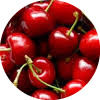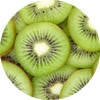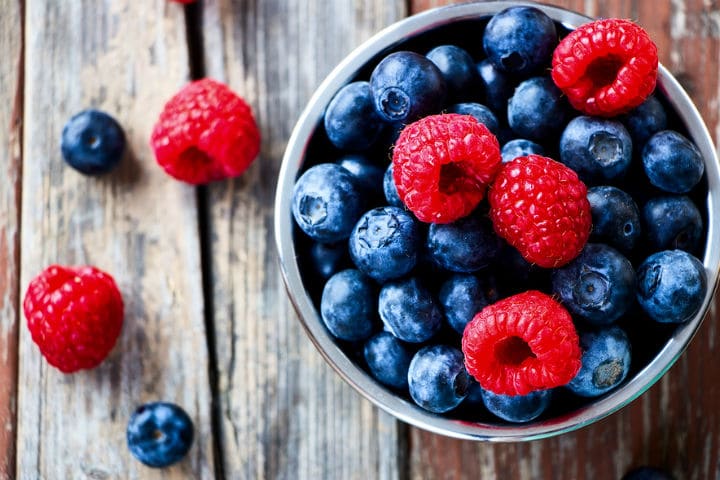Lynda: When did ‘nature’s candy’ become a poison to avoid? Many people are genuinely concerned about fruit intake. Some have even gone as far as avoiding fruit altogether for extended periods of time. Do we all need to avoid fruit, and if we do, are we missing out on magical nutrients and flavours?
Why Are We Concerned?
The main reason some of us worry about fruit is because of the naturally high-sugar (fructose) content of some fruits, which some believe may affect our blood sugar levels and weight-loss goals and may contribute to diabetes and non-alcoholic fatty liver disease.
There are also those who are sensitive to fructose. These people may experience gastrointestinal (GI) symptoms such as bloating, belching, gas, abdominal pain, and diarrhoea after eating fruit.
While I believe food sensitivities and GI symptoms need personalised dietary attention and further investigation, I do think that most of us are avoiding fruit unnecessarily and missing out on a great deal of health-promoting goodness.
Need convincing? A quick glance at the benefits of my top fruit picks below should sway you.

Blueberries are rich in the flavonoid anthocyanin, a potent antioxidant and anti-inflammatory compound. Studies have shown that blueberries can improve memory and learning and reduce depression.

Raspberries are rich in antioxidants that can support cardiovascular health and prevent hardening of the arteries. Raspberries contain raspberry ketone (RK), which burns fat and prevents obesity and fatty liver. Raspberries and other berries have also been shown to have a protective role where disease is concerned.

Blackberries burst at the seams with antioxidants. These compounds are protective and help to prevent tumor progression, neurodegenerative diseases such as Alzheimer’s, and bone loss.

Cherries are rich in the antioxidants anthocyanin and quercetin, as well as potassium, fibre, vitamin C, carotenoids, and melatonin. These nutrients have impressive health benefits such as prevention of heart disease, diabetes, Alzheimer’s, and inflammatory conditions.

Kiwis are a personal favourite of mine. They are exceptionally high in vitamins C, E, K, folate, carotenoids, potassium, fibre, and phytochemicals. Kiwifruit have substantial cardiovascular benefits like reducing high blood pressure and increasing the “good” HDL cholesterol. Kiwis support the immune system and may even reduce the risk and severity of the common cold and flu. It’s even been shown to improve poor sleep quality in those with sleep problems due to its antioxidant and serotonin content.

Papaya and papaya seeds have proven anti-parasitic activities. The dried papaya seeds in particular are effective in treating human intestinal parasites, without significant side effects. Papaya may be useful in preventing kidney damage, is amazing for digestion, and reduces common IBS symptoms, such as bloat
ing, constipation, and heartburn.

Avocados are fruits full of nutrients that can assist in weight loss, reduce inflammation, and protect and nourish the heart and brain. See more on avocados here: Can I Eat Too Many & Will They Make Me Fat?

Tomatoes are rich in the carotenoid lycopene. Lycopene is anti-inflammatory and a powerful antioxidant. Tomatoes are a very valuable addition to one’s diet, particularly to support heart health and prevent Alzheimer’s disease.

Green bananas are an amazing resistant starch, which has many health benefits, like weight management, diabetes control, and cholesterol lowering.

Studies have shown that grapefruit can lower blood pressure and improve cholesterol levels. Grapefruit is also a great addition to a weight-loss program and can improve metabolic syndrome.

Orange peel and flesh are rich sources of flavonoids and compounds associated with antioxidant and anti-inflammatory activity and cardiovascular benefits, and have been shown to lower high blood pressure.

The combination of lemon intake and walking has been shown to reduce high blood pressure. Lemons are also a good source of vitamin C, thiamin, riboflavin, pantothenic acid, iron, and magnesium and are an excellent source of fibre, vitamin B6, calcium, potassium, and folate. They have been shown to suppress weight gain and body fat accumulation. The presence of flavonoids in lemons helps to aid digestion and assimilation of food.

Research suggests that apples may reduce the risk of many chronic diseases such as heart disease, asthma, and type 2 diabetes. Apples also improve weight loss and lung function.
What Fruits to Avoid

Eating fruit salad is a very easy way to over-consume fruit. Stick to whole fruit pieces to avoid excessive fructose consumption.

Fruit juice lacks the fibre, vitamins, and minerals that whole fruits contain. The fibre in whole fruits helps to slow down sugar absorption, regulate bowel movements, and reduce constipation. Manufacturers often add extra sugar to fruit juice, which can affect blood sugar balance associated with type 2 diabetes and obesity.

Dried fruit has had its water content removed, making it extremely sugar dense. Dried fruit often contains preservatives, added sugar, and harmful inflammatory vegetable oils.

Toxic sugar and chemicals in a fancy vehicle. Enough said.
How Much Fruit Should You Eat Daily?
Stick to a modest one to two medium-sized pieces of fruit or ¼ to ½ cup of berries daily.







2 Replies to “13 Fruits To Eat (And 4 To Avoid) If You’re Trying To Lose Weight”
Hello Lynda,
I am a regular 180 user & reader of the site. I am interested in your article on the good fruits, How do I successfully eat green bananas without getting sick or having a stomach upset? I do like ripe bananas tho’ especially small portions frozen in my 180 smoothies.
Thanks
David
Hi David, thank you for your question. I would crowd in slowly with small amounts. Try adding a 1/4 of a green banana, sliced finely to your smoothies. The starch in green banana makes it resistant to our digestion. Instead it bypasses our digestion and feeds the flora in our gut. It contains calories but most are not usable by the body. Most people have tolerated a small amount of green banana well however start small to er on the side of caution. Try this Nourish Your Gut Flora Smoothie http://bit.ly/1M0Evq0 I hope that this helps 🙂
Comments are closed.